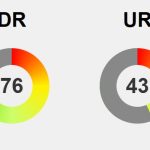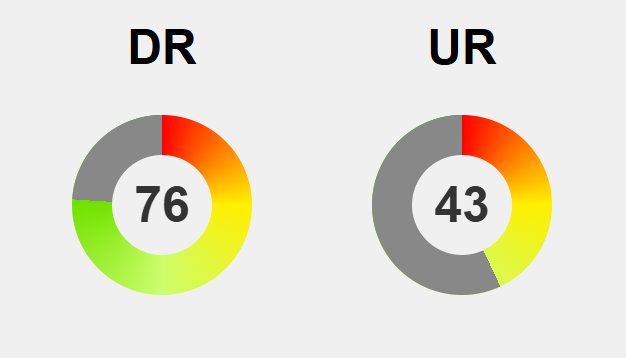Is intelligence primarily dictated by our genes or shaped by our environment? This compelling exploration delves into the complex interplay between DNA and life experiences, challenging the notion of fixed talent. Using the fictional family of Sheldon Cooper and his sister, the text highlights how genetic potential varies widely and is influenced by nurturing surroundings. It examines various forms of intelligence—IQ, emotional intelligence, social skills—and reveals that each can be cultivated through effort and environment. Recent scientific advances, from genome studies to neuroimaging, suggest a future where personalized interventions could unlock human potential from early childhood. But as we stand on the brink of these breakthroughs, ethical questions loom: how do we ensure fair access and prevent misuse? Ultimately, the journey underscores that intelligence is a dynamic, adaptable trait shaped by an ongoing dance between biology and experience—raising the provocative possibility that growth, not genetics alone, defines our true capabilities.
Unraveling the Mysteries: Genes or Environment — What Shapes Our Intelligence?
When it comes to understanding human intelligence, one of the most enduring questions is: how much of it is shaped by our genes versus the environment we grow up in? This debate has been around for decades, with scientists and thinkers on both sides presenting compelling arguments. Some believe that our DNA provides a blueprint, setting the upper limits of our cognitive potential from the moment we’re born. Others emphasize the power of experiences—education, social interactions, and life circumstances—in shaping how intelligent we become over time.
The interplay between genetics and environment is complex and dynamic. Genes influence traits like memory, reasoning, and problem-solving skills, giving us a starting point. But these innate capacities don’t develop in a vacuum; environmental factors like quality schooling, nutrition, and emotional support are crucial in activating and refining our natural abilities. In fact, many studies show that while genetics account for a significant portion of intelligence variation, environment can either amplify or suppress these genetic tendencies.
Twin studies provide some of the clearest evidence for the genetic component. Identical twins raised apart often have remarkably similar IQ scores, suggesting a strong hereditary influence. However, the same research also highlights the importance of environment—children with similar genetic makeup can have very different outcomes depending on their surroundings. A nurturing, stimulating environment can help individuals reach higher levels of potential, while deprivation or neglect can limit growth, regardless of genetic predisposition.
This ongoing debate has evolved from early black-and-white views to a more nuanced understanding. Most experts now agree that neither genes nor environment act alone; instead, they interact continuously. Our genetic blueprint provides the foundation, but life experiences shape how those potential traits are expressed and developed. Recognizing this interplay shifts the focus from fixed traits to the possibilities for growth and development, emphasizing that intelligence is not solely inherited but can be cultivated.
Knowing that both biology and experience influence intelligence encourages a more optimistic perspective. It suggests that anyone, regardless of their genetic starting point, can improve and expand their mental capacities through effort, learning, and supportive environments. This view promotes the idea that intelligence is a fluid, adaptable trait—one that responds to how we nurture it. The dance between DNA and environment makes each person’s mental journey unique and full of potential.
Building Blocks of the Mind: How Genetics and Environment Forge Our Intelligence Spectrum
Understanding the core of intelligence involves grasping how genetics and environment work together to shape our mental abilities. Genes form the biological blueprint, influencing traits like memory, reasoning, and emotional regulation through inherited DNA. They help set the potential range for various kinds of intelligence, including IQ and emotional intelligence (EQ). However, this potential remains dormant without the right environmental triggers. Factors such as quality education, social interactions, nutrition, and emotional support activate and refine these innate capacities, either unlocking talent or creating barriers to growth.
Different forms of intelligence highlight the diversity of human abilities. IQ measures cognitive skills like problem-solving and logical reasoning, while EQ focuses on understanding and managing emotions. These skills are influenced by distinct processes—genes tend to have a stronger influence on innate cognitive abilities, whereas emotional and social skills are more shaped by life experiences. Recognizing these differences underscores that intelligence isn’t a single trait but a spectrum of capabilities, each developing through a mix of biology and environment.
Research consistently supports the idea that DNA plays a significant role in shaping intelligence. Twin studies, especially involving identical twins raised apart, show that genetics account for roughly 50% to 80% of IQ variation. While no single gene determines intelligence outright, many genes interact within complex networks to influence cognitive abilities. Still, this genetic foundation doesn’t operate in isolation. Environmental factors can enhance or limit the expression of these genetic potentials, making the development of intelligence a dynamic process.
Environmental influences are equally crucial. A stimulating environment filled with learning opportunities, positive social interactions, and emotional support can unlock genetic potential, pushing individuals toward higher achievement. Conversely, neglect, limited access to education, or adverse circumstances can restrict development, regardless of innate talent. This interplay emphasizes that the realization of our mental capabilities depends on both inherited traits and life experiences, continuously influencing one another.
The long-standing debate over nature versus nurture has shifted from an either-or perspective to a recognition of their intertwined roles. Genetics provide the raw material—our starting point—while the environment directs how that material is used and developed. This understanding explains why people with similar genetic backgrounds can have vastly different outcomes based on their experiences. It also highlights that intelligence is fluid, adaptable, and capable of growth with the right support and effort.
By appreciating how biology and environment interact, we open the door to more personalized approaches to fostering human potential. Recognizing that genes set the stage but do not dictate destiny encourages the creation of nurturing environments that promote development at every stage of life. This integrated view helps us see intelligence not as fixed or predetermined but as a flexible trait that responds to effort, opportunity, and support, making growth accessible to all.
Beyond the IQ: Exploring the Rich Diversity of Human Intelligence and Talents
Understanding the many forms of intelligence broadens our view of human potential far beyond traditional academic measures. While IQ remains the most recognized and quantifiable form, it captures only a slice of what it means to be truly smart. Emotional intelligence, or EQ, involves more than just recognizing feelings; it’s about managing emotions effectively, understanding others’ perspectives, and building meaningful relationships. People with high EQ tend to excel in teamwork, leadership, and conflict resolution, demonstrating that social and emotional skills are vital for success in everyday life.
Beyond IQ and EQ, social skills form another crucial dimension of intelligence. These include effective communication, empathy, adaptability, and the ability to navigate social dynamics. Some individuals naturally possess these skills, but many develop them through experience, practice, and conscious effort. Recognizing the diversity of these abilities highlights that intelligence isn’t a single trait but a constellation of capacities that can be cultivated in various ways.
Howard Gardner’s theory of multiple intelligences expands this understanding by proposing that intelligence isn’t a one-size-fits-all trait. Instead, it encompasses linguistic, logical-mathematical, musical, bodily-kinesthetic, interpersonal, intrapersonal, naturalistic, and spatial domains. Each domain reflects different strengths—someone might be a gifted musician or an intuitive naturalist, while others excel in understanding themselves or interpreting complex social cues. This perspective values the unique talents each person brings to the table and underscores that intelligence can flourish in many forms.
Innate talent provides a foundation, but skills like language, athletic ability, or emotional regulation develop through deliberate practice and experience. For example, a person may have an ear for music but still needs to work at refining their craft. Similarly, emotional intelligence often grows through social interactions, self-reflection, and learning from experiences. This interplay between natural ability and learned skills emphasizes that intelligence is dynamic and capable of growth over time.
Contrasting characters like Sheldon Cooper and his sister Missy vividly illustrate these distinctions. Sheldon’s exceptional IQ showcases innate cognitive talent, while Missy’s high emotional awareness demonstrates that social and emotional skills can be nurtured independently. Their relationship highlights that different forms of intelligence—whether analytical or emotional—are not mutually exclusive but coexist and can be developed through various experiences.
Recognizing the multifaceted nature of intelligence encourages a more inclusive view of human potential. It shifts the focus from a narrow definition of “smartness” to appreciating diverse talents and strengths. This understanding promotes personalized development, allowing individuals to nurture their unique abilities and find their own paths to success. It also reminds us that intelligence isn’t fixed but adaptable, capable of expanding in numerous directions through effort and opportunity.
In essence, understanding the variety of human intelligence helps us see that being truly “smart” involves much more than just solving puzzles or scoring high on tests. It encompasses emotional insight, social skills, creativity, and self-awareness—all of which can be cultivated and refined. Embracing this diversity opens the door to recognizing and nurturing the many ways people excel, connect, and thrive in a complex world.
This broader perspective on intelligence also emphasizes the importance of lifelong learning and personal growth. For those interested in enhancing their emotional and social skills, exploring resources like learning about human emotional intelligence can be incredibly beneficial. By expanding our understanding and skills in these areas, we can unlock new potentials and foster more meaningful connections in all aspects of life.
From Insight to Action: Practical Steps to Cultivate Emotional and Social Intelligence
Enhancing emotional and social intelligence isn’t about changing your genetics; it’s about actively developing specific skills through consistent effort and mindful practice. No matter where you start, small, deliberate steps can lead to meaningful growth. Building self-awareness is fundamental—taking time to reflect on your emotions and reactions helps you recognize patterns and triggers. When you understand what influences your feelings, you can manage them more effectively and respond thoughtfully instead of reacting impulsively.
Practicing active listening is one of the most powerful ways to strengthen social skills. Fully focusing on others—listening without planning your reply or interrupting—fosters genuine connection and trust. Showing empathy by acknowledging others’ emotions and perspectives deepens relationships and creates a more supportive environment. Simple actions like asking open-ended questions or paraphrasing what someone says encourage understanding and demonstrate that you value their experience.
Setting small, achievable goals keeps your growth on track. For example, committing daily to expressing gratitude or giving sincere compliments reinforces positive behaviors. Mindfulness exercises, such as deep breathing or brief meditation, help regulate emotional responses and build resilience over time. These practices create mental space, allowing you to pause before reacting and make more considered decisions in emotionally charged situations.
Engaging intentionally in social activities provides practical opportunities to apply what you’re learning. Volunteering, joining clubs, or participating in team sports expose you to diverse perspectives and challenge you to practice new skills. Consistency is key—regular participation helps turn these behaviors into habits, making emotional and social intelligence an integral part of your daily life rather than an effort reserved for rare moments.
Reflecting on interactions afterward enhances your understanding and accelerates progress. Consider what went well and where you could improve. Asking trusted friends or colleagues for honest feedback offers external insights that can reveal blind spots. Remember, developing these skills is a gradual process; setbacks are normal and part of growth. Patience and persistence turn small efforts into lasting change.
Creating routines that embed these practices into your daily life ensures long-term improvement. Journaling about your feelings, practicing active listening, or setting social goals reinforces key components like self-awareness and empathy. Over time, these habits become second nature, making social interactions smoother and more authentic. Developing emotional intelligence is less about overnight transformation and more about steady, consistent effort.
By focusing on these practical steps, you foster a more connected, understanding version of yourself. Each small action contributes to a larger shift—one where emotional and social skills become natural tools for navigating life’s challenges. The journey isn’t about perfection but about continual, mindful growth that leads to stronger relationships, better collaboration, and a richer sense of personal fulfillment.
Looking Ahead: The Future of Intelligence Research and Its Promise for Personal Growth
Recent advances in science are reshaping our understanding of how genetics and environment work together to shape human intelligence. Genome-wide association studies are uncovering numerous genes linked to cognitive abilities, revealing that intelligence isn’t dictated by a single “IQ gene” but results from a complex network of genetic influences. At the same time, neuroimaging research shows how environmental factors—like education, nutrition, and social interactions—can physically alter brain structure and function, emphasizing the brain’s remarkable plasticity. These discoveries highlight that while genetics set a potential range, the environment determines where within that range an individual’s abilities will fall.
Looking ahead, personalized approaches to cognitive and emotional development are becoming more feasible. Advances in genetic testing and artificial intelligence are enabling early identification of individual strengths and weaknesses. Imagine tailored programs designed specifically to boost certain skills based on someone’s genetic makeup or brain imaging data, helping people reach their full potential regardless of inherited traits. These innovations promise more effective, accessible support that adapts to each person’s unique biological and experiential profile.
As research deepens, we’ll gain clearer insights into how specific genes influence different facets of intelligence, from problem-solving to emotional regulation. This knowledge could lead to targeted interventions—cognitive training or emotional skills exercises—that maximize growth at any age. By understanding the biological and environmental factors at play, we can craft strategies that foster development tailored to individual needs, transforming the way we approach education and personal growth.
However, these scientific strides also raise important ethical questions. Privacy concerns, equitable access, and the risk of discrimination must be addressed as technology becomes more integrated into our understanding of intelligence. Ensuring that these innovations benefit everyone—not just privileged groups—is crucial. Responsible use of genetic and neurological data can help prevent misuse and promote fairness in shaping human potential.
The evolving science underscores that intelligence is a dynamic, adaptable trait, shaped by ongoing interactions between our biology and experiences. Our genes provide a foundation, but environmental influences—such as learning opportunities, social engagement, and personal effort—are equally vital in determining outcomes. Recognizing this interplay encourages a shift away from fixed notions of talent toward a more inclusive view of growth and possibility.
Future breakthroughs hold great promise for unlocking human potential in ways we are only beginning to imagine. With more precise insights into genetics and brain function, we might develop interventions that help individuals overcome limitations or accelerate strengths from early childhood onward. This could lead to personalized education plans, emotional resilience training, and early detection of learning challenges—making support more proactive and effective.
Yet, as science advances, it’s essential to approach these developments with caution and responsibility. Ethical standards must guide the use of genetic and neurological information, safeguarding individual dignity and preventing misuse. Equitable access to these innovations will determine whether the benefits reach everyone or reinforce existing disparities. Careful stewardship ensures that scientific progress translates into genuine human progress.
Ultimately, understanding the complex dance between genes and environment transforms how we see intelligence—not as a fixed trait but as a fluid, evolving capacity. It invites us to foster environments that nurture growth at every stage of life, emphasizing effort, opportunity, and support. As research continues to illuminate these connections, it opens the door to a future where everyone can realize their full potential, regardless of their starting point.






